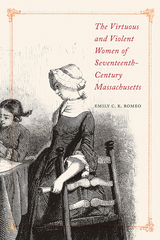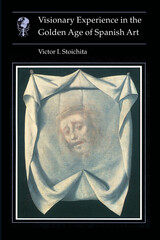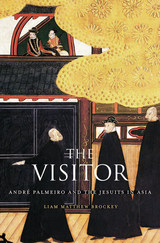6 start with V start with V

The Virtuous and Violent Women of Seventeenth-Century Massachusetts shows that more dramatic violence by women—including infanticide, the scalping of captors during the Indian Wars, and even witchcraft accusations—was not necessarily intended to challenge the structures of authority but often sprung from women's desire to protect property, safety, and standing for themselves and their families. The situations in which women chose to flout powerful social conventions and resort to overt violence expose the underlying, often unspoken, priorities and gendered expectations that shaped this society.

That Spanish painting is both cerebral and passionate is due to the particular historical forces which shaped it. Stoichita's account will be of crucial interest not just to scholars of Spanish art but to anyone interested in how art responds to ideological pressures.

This work examines the travel account of a German baroque author who journeyed in search of silk from Northern Germany, through Muscovy, to the court of Shah Safi in Isfahan.
Adam Olearius introduced Persian literature, history, and arts to the German-speaking public; his frank appraisal of Persian customs foreshadows the enlightened spirit of the eighteenth century (influencing Montesquieu’s Persian Letters as well as Goethe’s West-Eastern Divan) and prepares the way for German Romanticism’s infatuation with Persian poetry.
Elio Brancaforte focuses on the visual and discursive nexus uniting Olearius’s text with the numerous engravings that supplement the book. The emphasis falls on contextualized readings of Olearius’s decorative frontispieces and his new and improved map of Persia and the Caspian Sea, as expressions of early modern subjectivity.


In an age when few people ventured beyond their place of birth, André Palmeiro left Portugal on a journey to the far side of the world. Bearing the title “Father Visitor,” he was entrusted with the daunting task of inspecting Jesuit missions spanning from Mozambique to Japan. A global history in the guise of a biography, The Visitor tells the story of a theologian whose extraordinary travels bore witness to the fruitful contact—and violent collision—of East and West in the early modern era.
In India, Palmeiro was thrust into a controversy over the missionary tactics of Roberto Nobili, who insisted on dressing the part of an indigenous ascetic. Palmeiro walked across Southern India to inspect Nobili’s mission, recording fascinating observations along the way. As the highest-ranking Jesuit in India, he also coordinated missions to the Mughal Emperors and the Ethiopian Christians, as well as the first European explorations of the East African interior and the highlands of Tibet.
Orders from Rome sent Palmeiro farther afield in 1626, to Macau, where he oversaw Jesuit affairs in East Asia. He played a crucial role in creating missions in Vietnam and seized the opportunity to visit the Chinese mission, trekking thousands of miles to Beijing as one of China’s first Western tourists. When the Tokugawa Shogunate brutally cracked down on Christians in Japan—where neither he nor any Westerner had power to intervene—Palmeiro died from anxiety over the possibility that the last Jesuits still alive would apostatize under torture.

Italian courts and churches began employing castrato singers in the late sixteenth century. By the eighteenth century, the singers occupied a celebrity status on the operatic stage. Constructed through surgical alteration and further modified by rigorous training, castrati inhabited human bodies that had been “mechanized” to produce sounds in ways that unmechanized bodies could not. The voices of these technologically enhanced singers, with their unique timbre, range, and strength, contributed to a dramatic expansion of musical vocabulary and prompted new ways of imagining sound, the body, and personhood.
Connecting sometimes bizarre snippets of history, this multi-disciplinary book moves backward and forward in time, deliberately troubling the meaning of concepts like “technology” and “human.” Voice Machines attends to the ways that early modern encounters and inventions—including settler colonialism, emergent racialized worldviews, the printing press, gunpowder, and the telescope—participated in making castrati. In Bonnie Gordon’s revealing study, castrati serve as a critical provocation to ask questions about the voice, the limits of the body, and the stories historians tell.
READERS
Browse our collection.
PUBLISHERS
See BiblioVault's publisher services.
STUDENT SERVICES
Files for college accessibility offices.
UChicago Accessibility Resources
home | accessibility | search | about | contact us
BiblioVault ® 2001 - 2025
The University of Chicago Press









